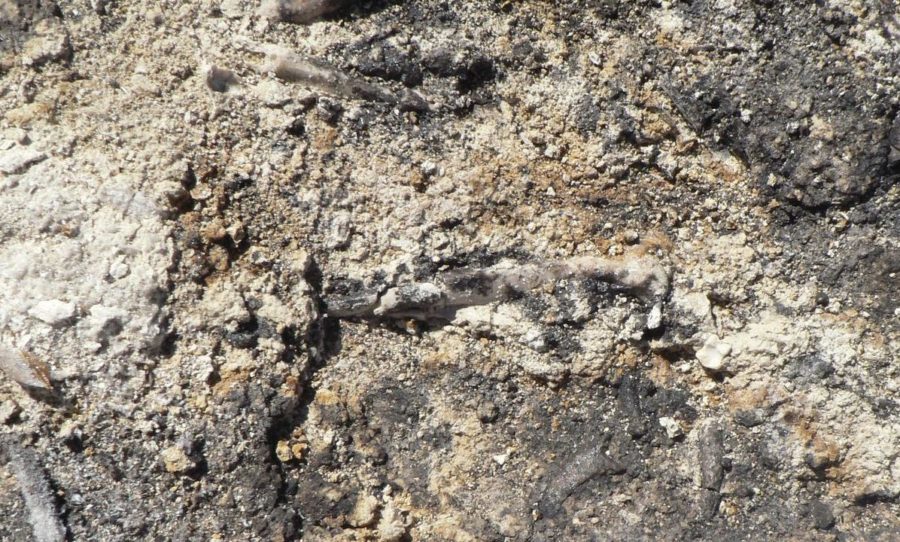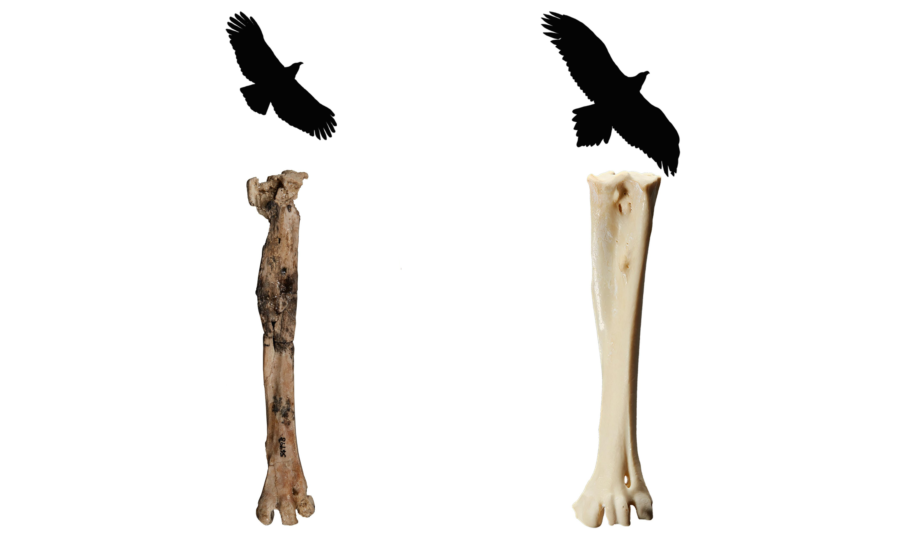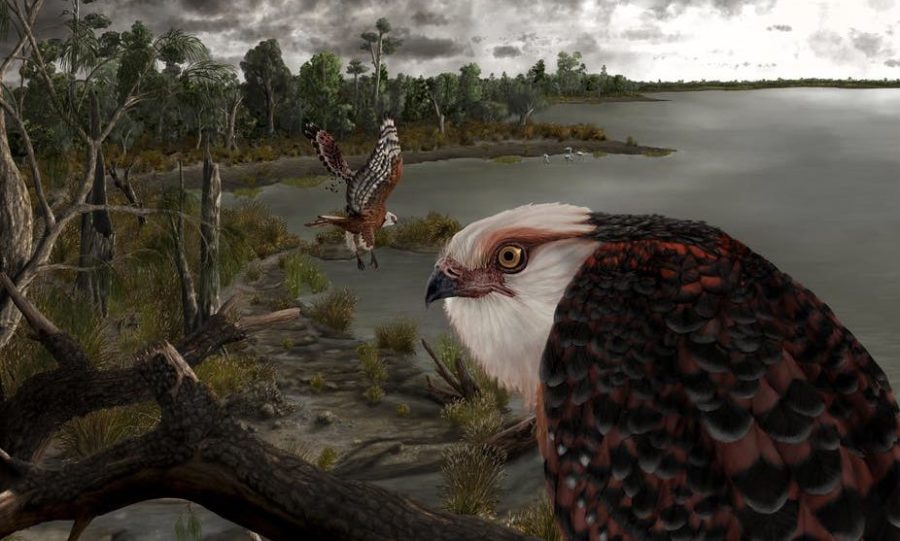A near-complete fossil of an eagle that lived 25 million years ago has been discovered by South Australian paleontologists.
Found on the shore of Lake Pinpa in the South Australian desert, were 63 bones belonging to the newly discovered raptor.
The discovery was made by a team from Flinders University in March 2016 but was only unveiled today in the journal of Historical Biology.

The eagle was given the name Archaehierax sylvestris, which is Greek for “ancient hawk of the forest”.
Slightly smaller and more slender than a wedge-tailed eagle, the Archaehierax had shorter wings compared to its body, suggesting it was a forest-dwelling ambush hunter.
Avian paleontologist, Dr Walter Boles, told the ABC, “So unlike wedge-tailed eagles, which have longer wings that are built for speed and soaring and tend to be “open country” hunters, Archaehierax lived in the trees, where it was an ambush predator,”.

Despite being found next to a lake, its diet did not consist of fish or other aquatic fauna.
The feet of the eagle were nearly 15 cm long, allowing it to grasp large prey. It is believed to have hunted an extinct species of koalas (around the same size as those today), possums and other tree-dwelling animals that surrounded the vast shallow lake.
A 25 million y.o. eagle fossil found on a Sth Aus outback cattle stn is believed to be of one of the worlds oldest raptors.
Uncovered by @Flinders paleontologists at Lake Pinpa, the Archaehierax sylvestris, Greek for ‘ancient hawk of the forest’, would’ve hunted koalas & possums pic.twitter.com/UUI4ObBYCH— Matthew Pantelis 🎙 (@MatthewPantelis) September 27, 2021
PhD candidate and lead author of the study, Ellen Mather, said in a statement, “The largest marsupial predators at the time were about the size of a small dog or large cat, so Archaehierax was certainly ruling the roost.”
“Ancient eagle fossils, even a solitary bone, are rare”, mentioned Mather.
The completeness of the fossil allowed researchers to determine its spot in the eagle family tree as well as making it one of the best preserved species found around Lake Pinpa.
Meet #Archaehierax – a fossil #eagle from Aus that ruled Aussie forests 25 million years ago. It’s one of the most complete raptor fossils from this period found anywhere in the world. This important discovery is explored in new research by @FlindersPalaeo @Flinders & @SAMuseum. https://t.co/NEUXmC3p9A
— South Australian Museum (@SAMuseum) September 28, 2021
The Archaehierax is the oldest known Australian bird of prey fossil so far, beating out the Pengana robertbolesi, which was found in north-western Queensland and lived around 23 million years ago.
The bones were found during investigations into the changing landscape of Australia, with the now dry and barren landscape of Australia’s interior once covered in trees and lush forests.



